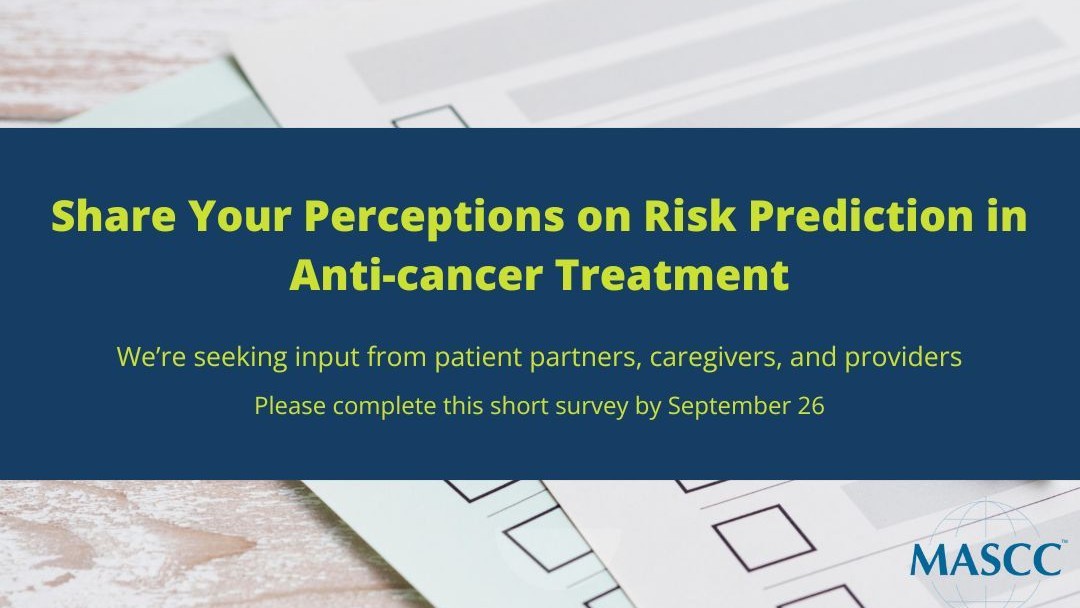The Multinational Association of Supportive Care in Cancer (MASCC) shared a post on LinkedIn:
“MASCC is conducting a study to understand the perceptions of healthcare providers, patients, and caregivers regarding the prediction of side effects of anti-cancer treatments (particularly mucositis). Our goal is to use this information to inform risk prediction strategies that can be most effectively implemented into daily clinical care.
The survey will take less than 15 minutes and is open until September 26, 2025. Please take a moment to complete it, and please circulate it among your networks, including patient partners and caregivers.
Access the survey here:
More posts featuring MASCC.


